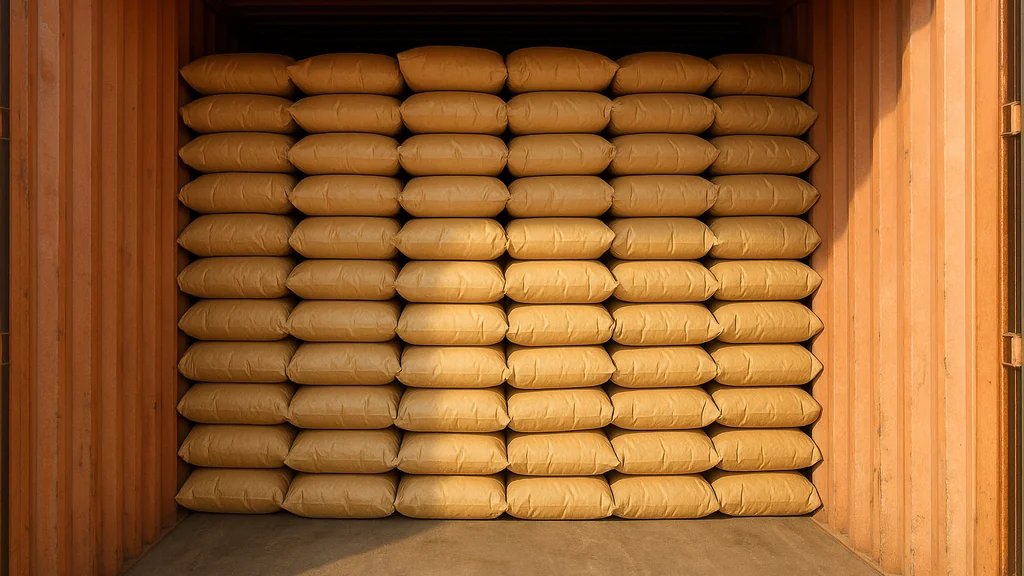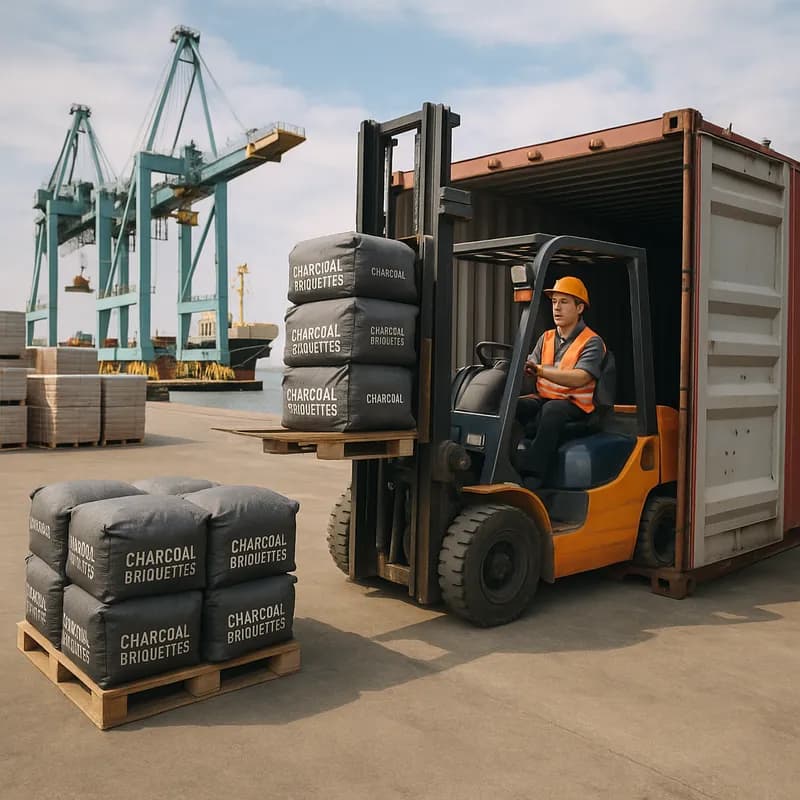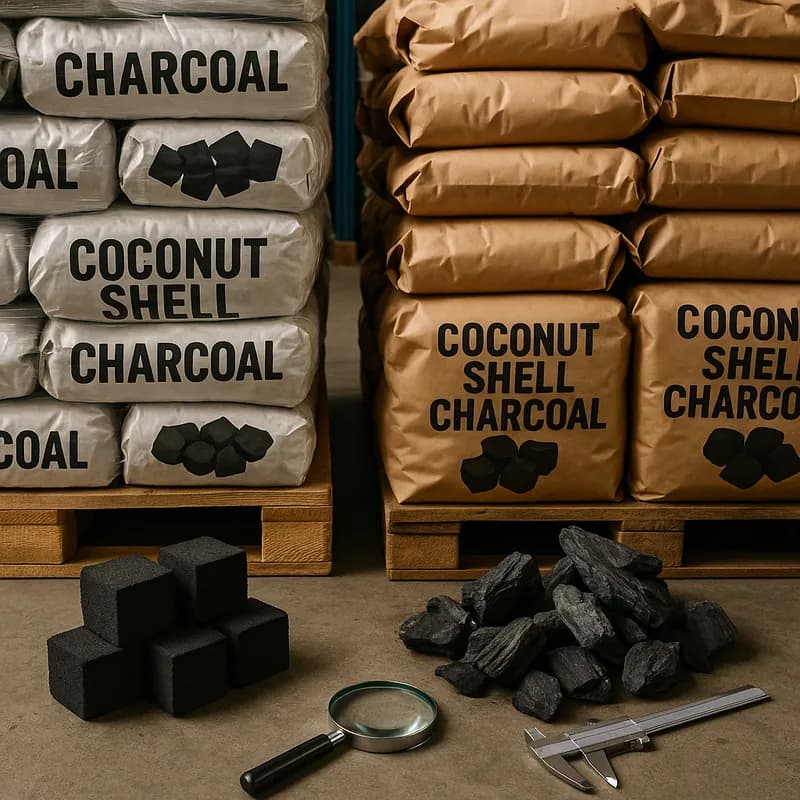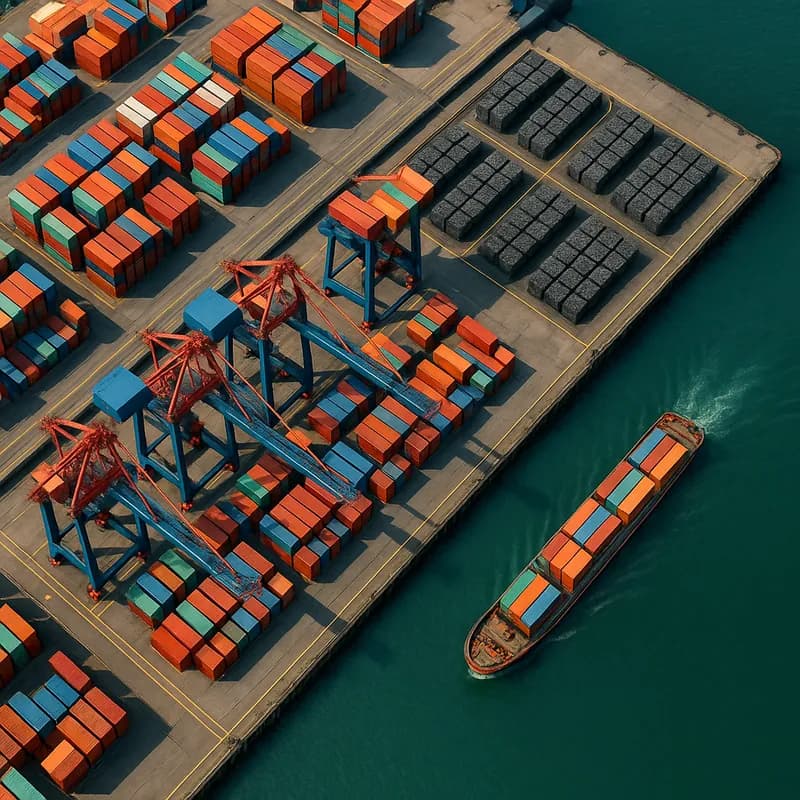Get clear on charcoal export from Indonesia in 2025—HS 4402, SVLK vs coconut shell, DG shipping, specs, and EUDR. Avoid costly mistakes; use this guide.
The Short Answer
If you’re buying or exporting charcoal from Indonesia in 2025, focus on three things: compliance, consistency, and logistics. HS code 4402 covers charcoal (including coconut shell briquettes). For the EU and USA, import duty is generally 0% under HS 4402, but wooden charcoal headed to the EU now falls under EUDR due diligence, while coconut shell charcoal doesn’t. SVLK (V-Legal) is mandatory for wood-based charcoal exports; it’s not legally required for coconut shell briquettes, though some buyers still ask for it or FSC as an assurance. On shipping, charcoal is often treated as dangerous goods (UN 1361, Class 4.2) unless you have a current self-heating test accepted by your carrier. A 20ft container of shisha briquettes typically nets 13–15 MT depending on packaging. Prices for premium coconut shell briquettes in 2025 sit roughly in the USD 900–1,400/MT (FOB) range depending on spec, box design, and order size.
What You Need to Consider
Can I export charcoal from Indonesia without SVLK or FSC?
- Wood-based charcoal (lump hardwood, sawdust briquettes) requires SVLK (V-Legal) for export clearance. Many destinations, especially the EU, expect it.
- Coconut shell charcoal is not a timber product. In practice, exports proceed without SVLK. Still, some buyers—especially large retailers—ask for SVLK or FSC as a risk signal. We’ve seen deals move faster when the seller can show clear traceability on shells (mill sourcing, shell origin) plus lab specs.
Takeaway: If it’s wood, plan on SVLK. If it’s coconut shell, SVLK isn’t mandatory but have your documentation and traceability ready to appease cautious buyers.
What is the HS code for coconut shell charcoal briquettes?
Use HS 4402 (Charcoal, including shell or nut charcoal), typically 4402.90. In the US HTS it’s 4402.90.00.00; in the EU Combined Nomenclature it’s usually 4402 90 00. Keep your product description accurate (e.g., “Coconut shell charcoal briquettes”). It helps with smooth customs clearance.
Is charcoal considered dangerous goods for ocean shipping?
Charcoal is listed as UN 1361, Class 4.2 (self-heating), PG III under the IMDG Code. That means many carriers require it as DG with a Dangerous Goods Declaration. There are exceptions: some carriers accept non-DG if you provide a recent self-heating test (UN N.4) from an accredited lab and proof of proper cooling/packaging. In our experience, it’s safer to budget for DG unless your forwarder confirms non-DG acceptance in writing for your specific lane. Practical tips:
- Load only fully cooled briquettes; keep moisture low; avoid contamination with oily residues.
- Use clean, dry cartons; consider temperature logs during curing.
- Work with carriers experienced in charcoal—policy varies by line and port.
How much does a 20ft container of Indonesian shisha briquettes weigh?
For retail-packed shisha cubes (1 kg boxes in 10 kg master cartons), expect 13–15 MT net in a 20ft, depending on box size, inner films, and palletization. Bulk packaging (e.g., 10–20 kg bags) can push to 16 MT, but most shisha buyers prefer retail cartons to control quality. For a 40ft HQ, 26–28 MT net is common if volume permits.
What documents do I need to export charcoal from Indonesia?
Core pack:
- Commercial Invoice, Packing List, and Bill of Lading
- Certificate of Origin (preferably Form ICO or chamber-issued)
- HS classification confirmation (4402.xx)
- SVLK V-Legal for wood-based charcoal; not required for coconut shell
- MSDS/SDS and (if shipping non-DG) a current UN N.4 self-heating test; if DG, IMDG docs and shipper’s DG declaration
- For EU wood charcoal: buyer’s EUDR due diligence data (plot-level traceability via supplier), not just V-Legal
On the exporter side, Indonesian clearance uses the PEB (export declaration) and standard business licensing (NIB). Build in time for any pre-shipment inspection your buyer requests (SGS, Intertek).
What moisture, ash, and fixed carbon specs should I expect?
Premium coconut shell shisha briquettes:
- Moisture: ≤5%
- Ash: 1.5–2.5% (white/very light grey ash preferred)
- Fixed Carbon: 80–85%
- Odor: neutral; no chemical smell; no sparking
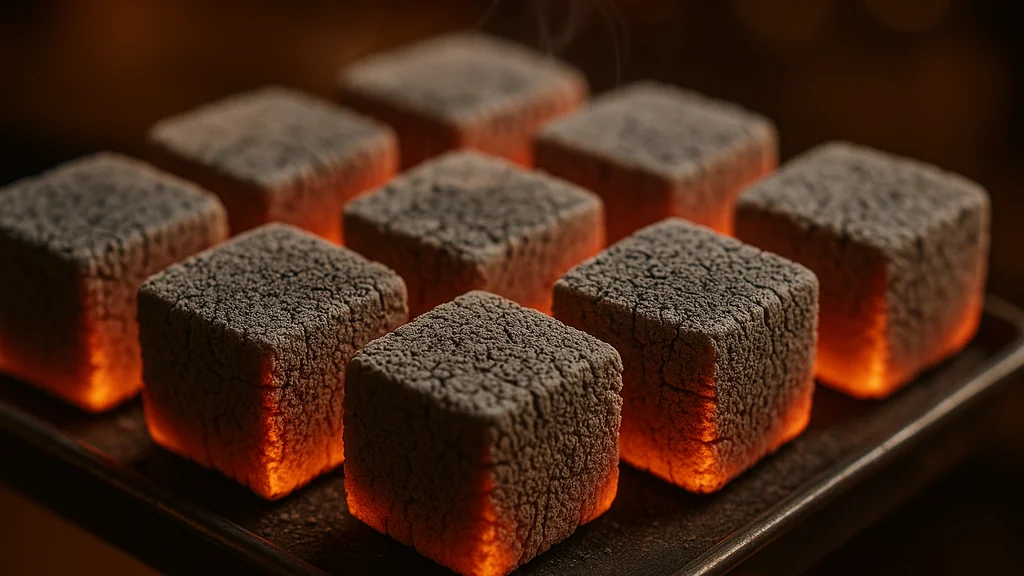
BBQ coconut shell briquettes:
- Moisture: ≤6–8%
- Ash: 2–4%
- Fixed Carbon: 75–82%
- Burn time: 4–6 hours (grill conditions matter)
If you need consistent, long-burning briquettes for food-service or industrial heat, see our BBQ Coconut Shell Charcoal Briquettes. They’re engineered for high heat with low ash, which reduces grill downtime and cleanup.
How do I verify a charcoal supplier in Indonesia is legitimate?
- Check company identity: request NIB and deed of establishment (akta) and make sure the legal name matches the bank beneficiary.
- Validate certificates: confirm SVLK license numbers on the official SILK portal and verify expiry. Ask for recent lab results stamped by accredited labs with traceable report numbers.
- Ask for export proofs: redacted Bills of Lading from the last 3 months showing the same shipper name and factory addresses.
- Factory reality check: video call walkthrough or a third-party audit. You’ll spot quickly if it’s a trader without production capacity.
- Payment discipline: for new suppliers, consider a small pilot order, LC at sight, or escrow with inspection conditions.
We’ve found that 3 out of 5 disputes we hear about started with mismatched company names on certificates and bank accounts—an easy early red flag to catch.
The Reality Check
Pricing in 2025 is stable but not static. For coconut shell charcoal briquettes:
- Shisha-grade FOB Indonesia: roughly USD 1,000–1,400/MT for premium boxes, depending on ash target, cube tolerance, and packaging (full-color retail boxes add cost).
- BBQ-grade FOB Indonesia: around USD 600–950/MT depending on fixed carbon, size, and palletization.
Freight whiplash has calmed compared to 2021–2022, but DG surcharges and port congestion can still swing total landed cost by USD 30–90/MT. Lead times are typically 2–4 weeks for production plus 3–5 weeks on water to Europe and 3–4 weeks to the US West Coast. Busy seasons (Ramadan, summer BBQ) can extend queues.
Regulatory nuance matters:
- EU: From late 2024, the EUDR is live. If your charcoal is wood-based, your EU buyer must prove it’s deforestation-free and legal—SVLK alone isn’t a silver bullet. You’ll need plot-level traceability for the wood source. Coconut shell products aren’t in-scope of EUDR wood rules, which is one reason many EU buyers are shifting to coconut shell briquettes.
- USA: HS 4402 generally enters duty-free (0% MFN). Standard customs processing fees apply. Ensure your product description is clear to avoid detentions.
- Middle East/Asia: Often 0–5% duty; confirm per country.
Shipping risk is real. The most common (and avoidable) headaches we see:
- Product shipped “warm” after pressing, then self-heating in transit. Solution: enforce a minimum curing period and internal QC temperature checks before stuffing.
- Overpromising on ash spec. Chasing ultra-low ash (<1.6%) without the right shell blend leads to brittle cubes. Ask for a trial run with lab data rather than a guarantee on paper.
- Wrong HS or poor labeling. “Charcoal” without “coconut shell” or “briquettes” listed can trigger inspections or misclassification.
Finally, not all briquettes are created equal. If you need consistent heat for hookah lounges, a dedicated shisha line (tight cube tolerance, very low ash, no odor) is non-negotiable. For restaurants or industrial heat, a higher fixed carbon BBQ briquette with predictable 4–6 hour burn is the better tool. Horses for courses.
Your Best Move
If you’re buying:
- EU buyer of wood charcoal: align early on EUDR data needs (GPS coordinates, harvest documentation). If your use-case allows, evaluate coconut shell briquettes to sidestep EUDR wood obligations.
- Hookah brand or lounge chain: specify ash color/percentage, cube tolerance (+/– 1 mm), and ignition method. Request a 100–200 kg pilot and run it in real sessions before locking specs.
- Food-service/retail BBQ: define burn time threshold and ash maximum, then co-design packaging. Ask for pallet layouts and carton crush tests to avoid damage in long hauls.
If you’re exporting:
- Decide DG vs non-DG upfront. If you’ll claim non-DG, book a UN N.4 self-heating test now and confirm acceptance in writing with your carrier/freight forwarder.
- Lock your HS code (4402.90) and ensure all documents match the product description. Prepare MSDS/SDS and, for wood-based products, V-Legal.
- Plan production backward from vessel cut-off: most plants need 14–21 days including curing. Don’t shave curing time to hit a sailing; it’s not worth the risk.
Step-by-step to ship from Indonesia:
- Finalize spec and packaging; 2) Perform lab tests (moisture/ash/fixed carbon, self-heating if needed); 3) Confirm HS code and destination compliance (SVLK/EUDR if wood); 4) Book space (DG or non-DG); 5) Produce and cure; 6) Pre-shipment inspection; 7) Stuffing and fumigation if required; 8) File export (PEB) and get BL; 9) Share full doc set with buyer for clearance.
If you want consistent, low-ash heat without EUDR wood complications, our BBQ Coconut Shell Charcoal Briquettes are a proven option for restaurants, retailers, and industrial users. For hookah applications, our Shisha Charcoal delivers steady heat with low smoke for longer sessions.
If you have questions about Charcoal Export from Indonesia: Everything You Need to Know or need expert guidance, contact our team.
Quick takeaways you can use today:
- Use HS 4402.90 and expect 0% duty to the USA/EU; confirm VAT and local fees with your broker.
- Treat charcoal as DG unless your carrier confirms otherwise with a valid self-heating test.
- For EU wood charcoal, EUDR due diligence is now table stakes; coconut shell briquettes avoid that specific obligation.
- A 20ft of shisha briquettes nets ~13–15 MT; plan packaging and palletization accordingly.
- Premium shisha targets: moisture ≤5%, ash 1.5–2.5%, fixed carbon 80–85%. Don’t accept promises without recent lab reports.
